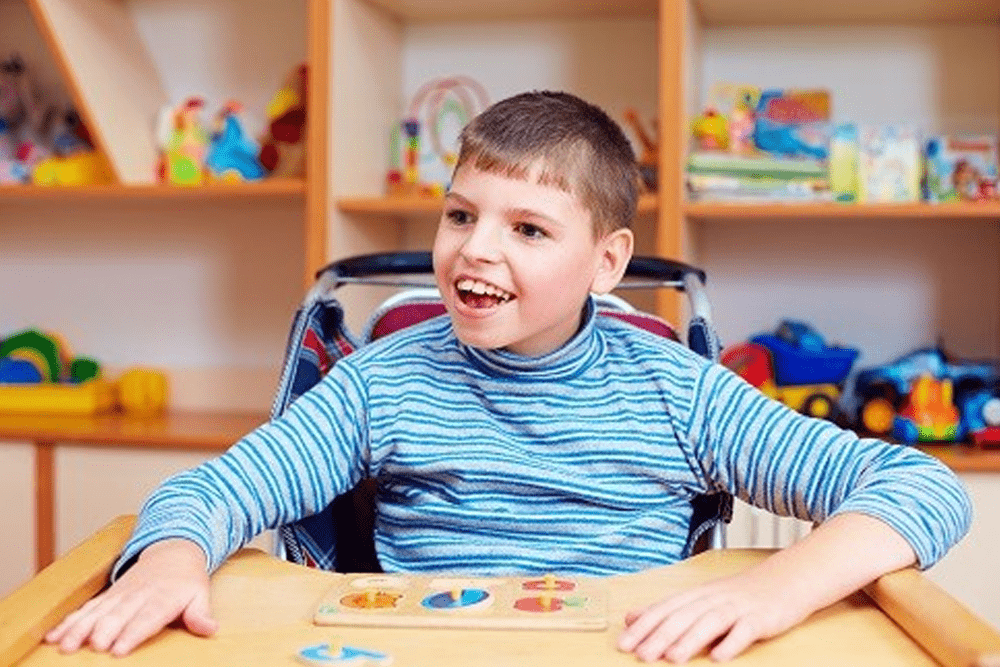The law about special educational needs and disability stresses how important it is that children take part as fully as possible in the decisions made about them. It also says that every child’s views, wishes and feelings should be taken into account.
Helping your child to tell you how they feel about life at school is vital for making sure they get support that works for them. It’s the foundation of good school SEN support or an Education, Health and Care plan.
There are lots of ways to help your child to talk about what school is like for them and what they would like to achieve and change. The information below tells you what you need to find out, how to go about it and how to record and share it.

A child’s views, wishes and goals are the foundations of good planning and support in school.
 If the needs identified, the targets set or the support given don’t help a child to achieve their goals, then they’re less likely to work. So, good planning and support starts with understanding what your child is good at, what’s hard for them and what their goals and dreams are.
If the needs identified, the targets set or the support given don’t help a child to achieve their goals, then they’re less likely to work. So, good planning and support starts with understanding what your child is good at, what’s hard for them and what their goals and dreams are.
When your child is very young, as their parent or carer you’ll know what they need and the kind of help that would best support them. You can be their advocate and speak on their behalf.
As your child gets older and has clear views of their own, it’s important to encourage them to be ambitious and support them to share in the decisions made about their support. Sharing their views is a great way to help children learn to speak up for themselves as adults.
Children and young people with special educational needs or a disability (SEND) may need more support than others to develop these skills, but their views are just as important.
If your child has an Education Health and Care (EHC) plan or is having an assessment for one, you might hear about something called the ‘Golden Thread’. When you’re reading your child’s EHC plan you should be able to see a clear link between their aspirations (what their goals are), their needs, the support they get and the difference that will make. This should apply to any plan your child has, including those that their school writes. The starting point should be your child’s goals or aspirations and everything else should follow from that.
There are many times when your child’s views should be part of the decisions made about their education and support, such as:
Your child’s views should be listened to alongside your views and those of any professionals. They’re equally important, as without them, whatever support the nursery or school puts in place may not work as well as it should. So, for example, if your child tells you they find it hard to be in a busy and noisy environment, but their plan has no support in the lunch hall or during assemblies, then it’s unlikely to work.
Whatever your child’s age or ability, you will need to find a way to help them ‘talk’ about what they’re good at, what they find hard and what their hopes, dreams and goals are.
You’ll need to work out the best way to do this in a relaxed and playful way, which meets them on their level. Home is often the best place to do this, though anywhere they feel comfortable or safe will work just as well.
Here are some top tips from parents and DiAS volunteers about how to do this:
One of our volunteers put together some top tips based on her experiences of talking to children about school.
The Three Houses tool and the Three Islands tool are simple ways to help your child share what they think and feel about their lives. You can use it to help them talk about home, school or both.
 Drawing can be a great way of helping a child to express themselves if they’re finding using words difficult. One useful way to do this is to ask your child to draw their day in a big circle like a clock, from when they get up all the way round to when they go to bed. They can use speech and thought bubbles to show what’s going on for them and the people around them. Using different colours for different emotions throughout the day is another useful way to add more detail.
Drawing can be a great way of helping a child to express themselves if they’re finding using words difficult. One useful way to do this is to ask your child to draw their day in a big circle like a clock, from when they get up all the way round to when they go to bed. They can use speech and thought bubbles to show what’s going on for them and the people around them. Using different colours for different emotions throughout the day is another useful way to add more detail.
If your child has been assessed by an educational psychologist, they may have spent time finding out what your child thinks about school too. You can look at this information as well and ask your child if they want to share it as part of their views.
There is also a range of free to use person-centred thinking tools you can try with your child.
To begin with, think about what the most important things to know are. If your child has problems concentrating or communicating you may need to focus your efforts and look at just a few things. It’s worth remembering that there are no right or wrong answers. Make sure they know that too.
Here are some of the things that you might want to ask and find out about (you don’t need to do them all):
There are a number of ways to record your child’s views:
The important thing is to make sure your child’s views are shared. You don’t have to share them with everyone and if there is someone you or they don’t want to see them, make that clear. Otherwise, send a copy to:
It’s a good idea to get your child’s views at least once a year, but you can to do it more often if you want. If they’re going through a lot of change or finding things especially difficult it’s a good idea to find out what they’re thinking and feeling.
Sharing views and then seeing things happen as a result, is an important thing for a child to learn. It helps them to feel listened to and valued, and feel that they have some control over what happens to them.
 Sometimes it’s easy for a child’s views and their voice to get lost in the discussions about school support. If there are lots of professionals involved, if your child has complex needs, or if their behaviour is challenging it’s all too easy to lose sight of their wants and needs.
Sometimes it’s easy for a child’s views and their voice to get lost in the discussions about school support. If there are lots of professionals involved, if your child has complex needs, or if their behaviour is challenging it’s all too easy to lose sight of their wants and needs.
Children can sometimes echo the views of their parents or carers too, for all sorts of reasons. So, it’s important to make sure that it’s your child’s voice that everyone hears and that it stays at the heart of any discussions. Here are a few tips to help that happen.
When you’re in a school meeting, always ask if you can give your child’s views first. Some parents take a photo of their child into meetings and put it out for everyone to see, to remind them that their child is at the heart of the discussions.
Children and young people also have a right to talk to someone from an Information Advice and Support service, such as DiAS for confidential and impartial advice, including help to give their views. DiAS has two children and young people’s workers who can help children and young people share their views. Contact us for more information.
 Every child is different so you’ll need to decide whether your child is likely to want to go to a meeting, and how well they will cope.
Every child is different so you’ll need to decide whether your child is likely to want to go to a meeting, and how well they will cope.
Children can and do go to meetings and, as they get older, this is a helpful way of getting them involved in decisions. Some children also like to know what everyone is talking about! However, not every child will want to, or will be able to manage it. Meetings can feel intimidating for children, and they can also find them boring.
If your child wants to be involved, then you could ask them to come to the start of the meeting for a few minutes to talk about what’s working at school and the help they need. That way they can take part, see what the meeting is like and have their say with the least amount of stress.
 As you know, children don’t communicate just by speaking.
As you know, children don’t communicate just by speaking.
There is a wide range of tools to help your child share their views, from watching facial expressions and gestures, through to pictures and cards and high tech devices.
You know what works best for your child, so use the communication methods they prefer.
It’s important to tell your child what difference sharing their views will make. This helps to give them confidence in their ability to understand and influence what happens around them.
You can explain that their views were discussed and thought about. Then talk about the decisions made. If your child has asked for something that can’t be done, then it’s important to explain why.
Page reviewed: April 2024
Page due for review: April 2026
DiAS (Devon, Information, Advice and Support) supports children and young people aged 0-25 with special educational needs and disabilities (SEND), and their parents and carers.
Helpful links
Contact us
Legal
© 2025 Devon Information Advice & Support
Searching...